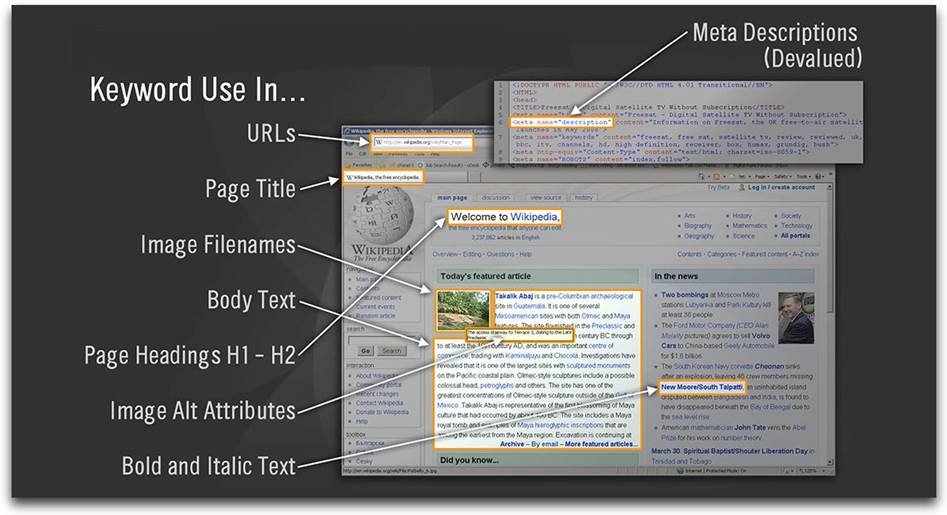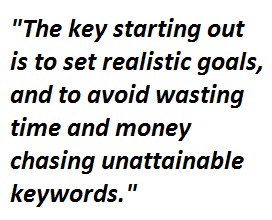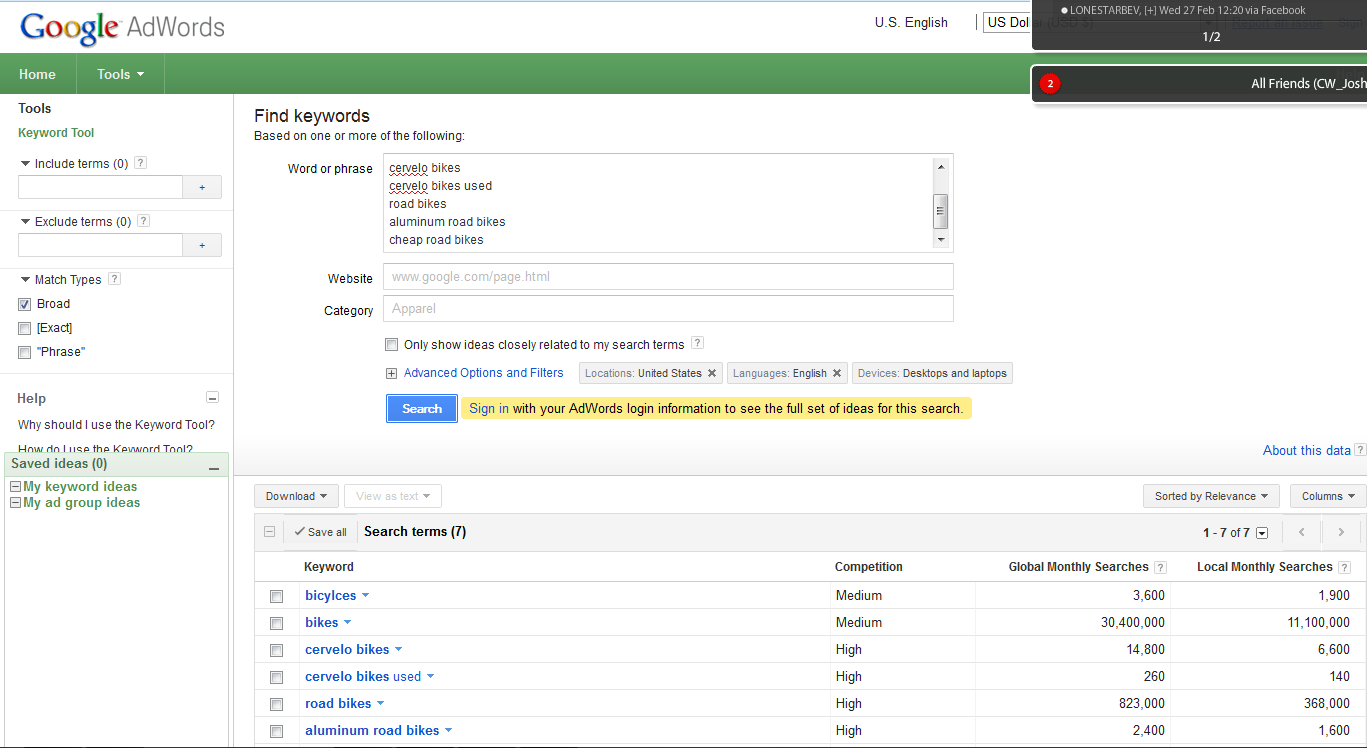SEO For Beginners Part I: Keyword Research
Small Business Marketing: An Introduction to Keyword Research
Whether you’ve decided to take the leap into entrepreneurship or you’re simply blogging; once you have your domain name purchased and are just about to set up your website (even before the first lines of code or WordPress themes are installed), every professional website operator should have a complete list of keywords they think will be relevant to their business. What’s a keyword, you ask?According to RemarkaBlogger.com’s Michael Martine a keyword is simply the word (or phrase) people type into the search box at a search engine. So why do you need to research keywords and where do you start?
What’s a keyword, you ask?According to RemarkaBlogger.com’s Michael Martine a keyword is simply the word (or phrase) people type into the search box at a search engine. So why do you need to research keywords and where do you start?
What is keyword research?
Keyword research is a process in which a list is compiled of keywords to feature in the design and content of your site. This is accomplished by (as Google says in their SEO guide) thinking like your customer. What do you think they would be searching for?
Why is Keyword Research Important?
Keyword research is essential to any business as it forms the backbone of your search engine optimization. Without taking time and effort to think about what your potential customers will be searching for, you run this risk of never being found. It would be like opening a restaurant but forgetting to put a sign out front.Jeremy Bench from Wordloop goes as far as to say that keyword research is the marketing strategy
Keyword strategy is segmentation, targeting, and positioning all rolled into one. It’s the foundation of strategy. Your keyword selection determines which competitors you’re going up against, what kind of authority signals you need to attract, and most importantly, what organic searchers need when they come to your site. And all of that determines what content and experience you need to offer them."
Before we run through some tools to find out what your potential customers are searching for, it’s important to understand the difference between the two main types of keywords; long tail and short tail
Short-Tail Keywords
These terms have:
- Broad meanings — e.g. “lawyer” or “cell phone”
- Most of these terms are very general.
- High traffic
- Many people search using short tail terms so with this comes…
- High competition
- Huge companies with vast resources will be trying to rank for these terms
- A difficulty to rank high
- High rankings for short tail terms is only possible with great content and marketing.
But as your site grows, ranking well for short tail keywords becomes more feasible. The key starting out is to set realistic goals, and to avoid wasting time and money chasing unattainable keywords. So at first, long tail keywords (longer, specific phrases) are the best to devote resources towards.
Long Tail Keywords = Higher Conversion
These keywords have:
- A Specific focus– e.g. “Best patent lawyers” or “Samsung Galaxy S3″
- They tend to be more obscure and narrow keywords
- Results that are tailored to the searcher
- The great thing about long tail keywords is that they bring in users that are looking for something specific. The users landing on your site using these keywords will less likely have gotten there by mistake. And as these users seem to have prior research already under their belt, they are more likely to be in a buying mindset. SEOmoz goes as far as to say that someone searching for a long tail keyword like the above examples “practically has their wallet out.”
- Less competition
- Because of this, less time and money needs to be spent on ranking them.
- Less traffic
- The main drawback is the fact that especially niche terms aren’t searched for all that often, so avoid terms with really low volumes. To find out keyword search volumes and competitiveness, use the free Google AdWords Keyword tool. From this data, a Keyword Effectiveness Index (KEI) can be produced derived by dividing the monthly searches squared by the total number of results (KEI = S2/R). Generating KEIs for your keywords allows you to analyze your keywords more effectively, but a high KEI shouldn’t be the only factor when selecting keywords. This is because the KEI doesn’t take into account the quality of the competition
 Online retailers, especially with specialized or niche products should try to focus less on short tail keywords. This is because the users that search for the shorter tail keywords are more likely to make a purchase. For example, somebody searching for bicycles (a short tail keyword) could be researching the history of the bicycle. An online bicycle store may receive more traffic by targeting this keyword, but end up with a lower conversion rate (percentage of visitors buying their product) than before.
Online retailers, especially with specialized or niche products should try to focus less on short tail keywords. This is because the users that search for the shorter tail keywords are more likely to make a purchase. For example, somebody searching for bicycles (a short tail keyword) could be researching the history of the bicycle. An online bicycle store may receive more traffic by targeting this keyword, but end up with a lower conversion rate (percentage of visitors buying their product) than before.
So how do you find the long-tail keywords associated with your website?
There are hundreds of SEO tools out there, but the following are regarded to be the industry standards for keyword research.
Keyword Research Tools

Google Suggestion Box – This is the first place I would recommend looking. Simply type a word or phrase into Google’s search box and see what Google suggests. Obviously this isn’t going to give you an exhaustive list of keywords, but it’ll point you in the right direction.
Google Adwords Keyword Tool – Google’s free tool that allows the user to see the competition and monthly searches for keywords. Also provides a list of suggested keywords. It’s free and easy to use. However it is a basic tool, and while it should be sufficient for a small company or novice, more experienced users may want something with more complexity.
Wordtracker - Wordtracker is a beefed up version of Google’s Adword’s tool. Wordtracker Does a lot of the work for you, as Google’s tool requires the user to brainstorm links and manually type them in. Wordtracker also allows you to ‘steal’ your competitors’ keyword research. However Wordtracker does come at a high price point ($69 a month). This may be too much for small, local businesses, but if the majority of your revenue comes from the web, Wordtracker is a great choice. They also have a free version of the tool which would suffice for most people.
Market Samurai - Market Samurai is a versatile software program that allows the user to research keywords, back-links, and even the rankings of potential domain names for your site. Pros- Market samurai is versatile, and comes with a marketing strategy guide for beginners. They also have a “dojo” on their website that contains a bunch of useful articles and guides. Like Wordtracker, Market Samurai isn’t free. But at $149 for a lifetime subscription, it‘s cheaper than WordTracker in the long run.Next week, we’ll delve into more advanced topics; keyword research for different types of online media, and how to use geo-targeted keywords. In the meantime, jump over to this ChooseWhat forum post and add any questions about keyword research and improving your website ranking. One of our SEO experts can answer your questions immediately.


